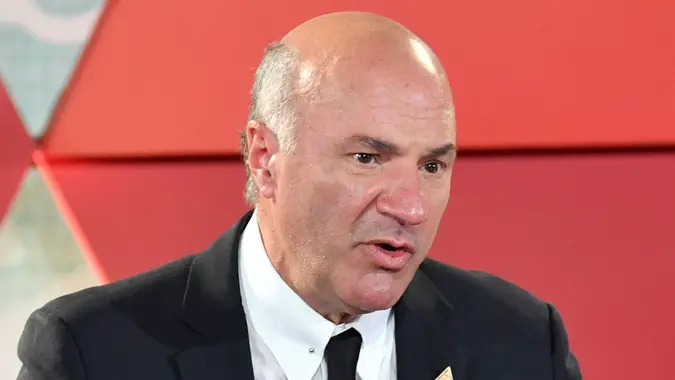Retirement Expert Warns Taking Penalty-Free $1,000 From 401(k) Is ‘Bad Idea’ — 3 Hidden Reasons Why

Commitment to Our Readers
GOBankingRates' editorial team is committed to bringing you unbiased reviews and information. We use data-driven methodologies to evaluate financial products and services - our reviews and ratings are not influenced by advertisers. You can read more about our editorial guidelines and our products and services review methodology.

20 Years
Helping You Live Richer

Reviewed
by Experts

Trusted by
Millions of Readers
The 2022 SECURE 2.0 Act aimed to make retirement plans more attractive and accessible, with the ultimate goal of easing what some have called a “retirement savings crisis” in the United States. But not all of the bill’s provisions encourage saving more money. In fact, one of them makes it easier to withdraw money from a 401(k) or IRA penalty-free — and some experts say it’s a bad idea.
Starting this year, you can make one withdrawal of $1,000 per year from your retirement plan to cover personal and family emergency expenses without an early-withdrawal penalty, CNBC reported. To qualify, you need to self-certify that the money is needed for an emergency.
Normally, any money you take out of a traditional 401(k) before age 59.5 is subject to a 10% early withdrawal penalty. Even after the passage of SECURE 2.0, you’ll face the same penalty if you don’t meet certain criteria. But the bill did open up more avenues to withdrawing $1,000 penalty-free. Whether you should is open to debate, however.
Alex Beene, a financial literacy instructor for the state of Tennessee, told Newsweek in a recent interview that although the rule was made with the best of intentions, it’s still a bad idea for most Americans. Here are three reasons why:
- You will still have to pay taxes on the withdrawal even though you won’t have to pay a penalty.
- You’ll be tapping into important retirement funds that could prove useful when you reach your senior years. Beene advises that you exhaust every other budget option before taking money from your retirement plan.
- You will slow the growth of your retirement investments due to the impact of compounding interest.
Even if you need the $1,000 to help pay the bills, there are other strategies you can take before dipping into your retirement account. Most financial advisors recommend finding ways to cut your monthly spending or boost your income through side gigs or other means.
 Written by
Written by  Edited by
Edited by 

























